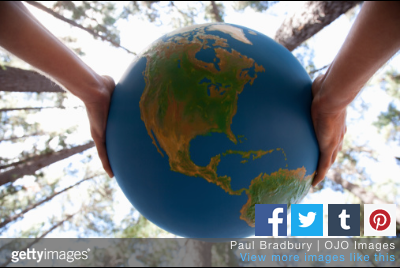America was founded under premises of God. We are “one nation under God.” Our currency ensures that “in God we trust.” God and country are practically synonymous in these parts. Religion is one of the foundations on which this country was built, but as far as environmental initiatives are concerned, I do not believe we are CTR (choosing the right), nor are we considering WWJD (what would Jesus do).
Religious influence infiltrates politics and often sets the tone of how we define our relationship with nature. In Christianity, the Biblical book of Genesis alleges that God said, “Let us make mankind in our image, in our likeness, so that they may rule over the fish in the sea and the birds in the sky, over the livestock and all the wild animals, and over all the creatures that move along the ground.” When 70.6 percent of Americans identify as Christians, it’s easy to see why the majority of Americans justify human domination over nature.
This Christian-human superiority complex was made evident in a conversation I had with a co-worker a few months back. After telling this particular employee that I was an Environmental and Sustainability Studies major, he just stared at me with this unforgettable look of complete disdain. Following an uncomfortable silence, he asked if I was “one of those global warming conspiracists.” After 20 minutes of using facts and logic to try to convince him that, as a science major, I did in fact have good reason to believe in climate change, I could tell my words were not resonating, to say the least. Especially when he told me that “God put fossil fuels on this earth for us to use.”
That hit my conscience hard. How could goals of sustainability compete with God’s agenda? The only way I could respond was with a blank stare. I was baffled that a religious belief could justify the careless use of fossil fuels, trumping the warnings of science, physicians and government leaders. But then — redemption. The heavens parted, rays of sunshine fell upon the earth and angels started to sing: Pope Francis delivered his speech to Congress warning us about the effects of climate change and urging Americans to redefine their relationship with consumerism and become better stewards to the Earth. Maybe this was the answer to my enviro-prayer?
Religion and environmentalism do not have to be mutually exclusive. In his speech, the Pope reminded us that humans are “grounded in three fundamental and closely intertwined relationships: with God, with our neighbor and with the earth itself.” In Judaism, humans are viewed as stewards of the Garden of Eden, and wasting and destroying God’s creation is condemned. In Islam, the prophet Muhammad’s stance on the environment is quite clear: “Created beings are the dependents of God, and the creature dearest unto God is he who does most good to God’s dependents.” Buddhism teaches that all sentient beings are equally valuable. In Hinduism, followers are to live simple life, and are taught not to value material possessions or to disturb nature’s checks and balances.
So instead of treating this life and planet like a stepping stone to something better, the religious should be reminded that most of the dominant religions in America have roots in good environmental stewardship. Whether or not we are denominational, we should all take page out of Pope Francis’ sermon and understand that the renewal of our relationship with nature cannot occur apart from renewal of humanity itself. Our souls aren’t the only things that need saving.


